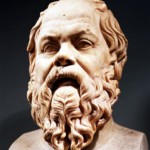A landmark study led by King’s College London and the Black Dog Institute in Australia has revealed that regular exercise of any intensity can protect against depression – and just one hour can help.
Published today in the American Journal of Psychiatry, the results show that even small amounts of exercise could prevent depression, with mental health benefits seen regardless of age or gender.

Huge study
In the largest and most extensive study of its kind, the analysis involved 33,908 Norwegian adults who had their levels of exercise and symptoms of depression and anxiety monitored over 11 years.
The international research team found that 12 percent of cases of depression could have been prevented if participants undertook just one hour of physical activity each week.
‘We’ve known for some time that exercise has a role to play in treating symptoms of depression, but this is the first time we have been able to quantify the preventative potential of physical activity in terms of reducing future levels of depression,’ said lead author, Associate Professor Samuel Harvey from the Black Dog Institute, who completed the work as part of his PhD at King’s College London.
‘These findings are exciting because they show that even relatively small amounts of exercise – from one hour per week – can deliver significant protection against depression. We are still trying to determine exactly why exercise can have this protective effect, but we believe it is from the combined impact of the various physical and social benefits of physical activity.
“Substantial physical and mental benefits”
‘These results highlight the great potential to integrate exercise into individual mental health plans and broader public health campaigns. If we can find ways to increase the population’s level of physical activity even by a small amount, then this is likely to bring substantial physical and mental health benefits.’

Professor Matthew Hotopf, Director of the NIHR Maudsley BRC at South London and Maudsley NHS Foundation Trust and the Institute of Psychiatry, Psychology & Neuroscience, King’s College London, said: ‘There is always this problem of causal effects: when you ask people who are depressed if they are doing much exercise, they say no. Is that because they are depressed or did the lack of exercise make them that way? This study in some way disentangles this question.’
Researchers used data from the Health Study of Nord-Trøndelag County (HUNT study) – one of the largest and most comprehensive population-based health surveys ever undertaken – which was conducted between January 1984 and June 1997.
A healthy cohort of participants was asked at baseline to report the frequency of exercise they participated in and at what intensity: without becoming breathless or sweating, becoming breathless and sweating, or exhausting themselves. At follow-up stage, they completed a self-report questionnaire (the Hospital Anxiety and Depression Scale) to indicate any emerging anxiety or depression.
The research team also accounted for variables which might impact the association between exercise and common mental illness. These include socio-economic and demographic factors, substance use, body mass index, new onset physical illness and perceived social support.
Forty-four percent increased chance of depression!
Results showed that people who reported doing no exercise at all at baseline had a 44 per cent increased chance of developing depression compared to those who were exercising one to two hours a week.
However, these benefits did not carry through to protecting against anxiety, with no association identified between level and intensity of exercise and the chances of developing the disorder.
Article first published in the Kings College London web site www.kcl.ac.uk.
For further information please contact Jack Stonebridge, Senior Press Officer, Institute of Psychiatry, Psychology and Neuroscience, Kings College London on jack.stonebridge@kcl.ac.uk or 020 7848 5377.
Paper Reference: Harvey et al (2017) – Exercise prevents depression but not anxiety: Results of the HUNT cohort study – The American Journal of Psychiatry DOI: 101176/appi.ajp.2017.1611123


Leave a Reply